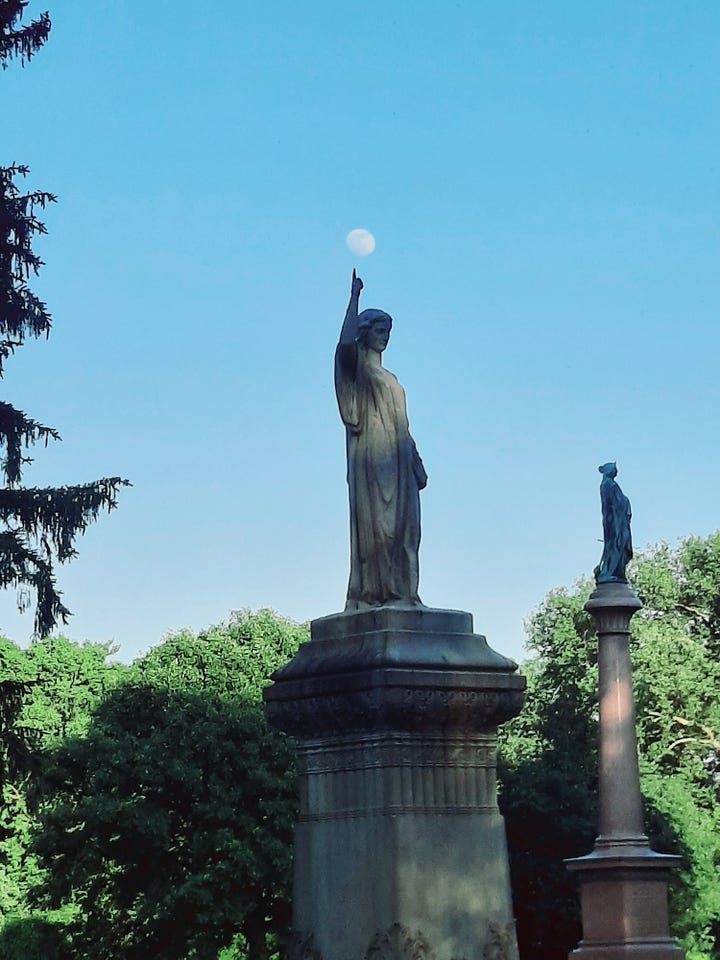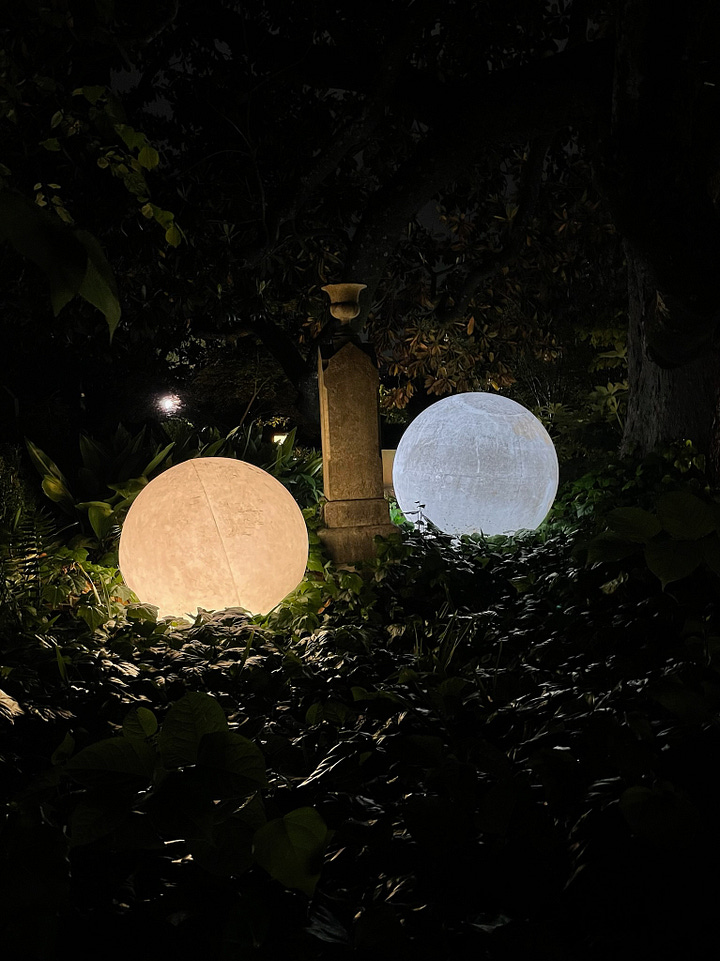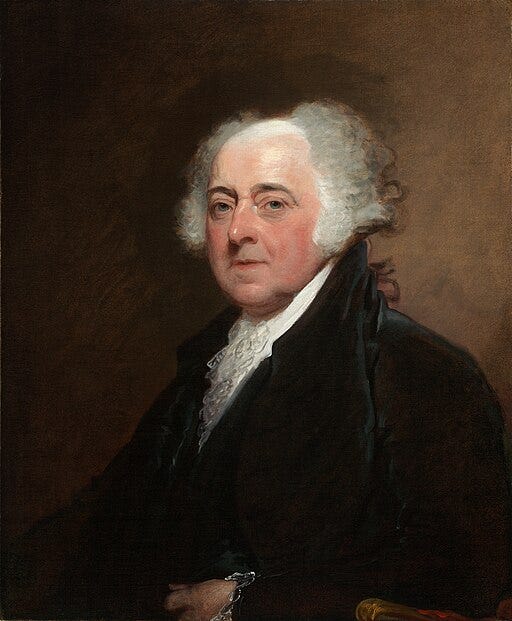After finishing my reading picks about the Alpha president, George Washington, it was time to pick a book (or two) about his vice president and successor, John Adams. It is interesting to think about what initial impressions a president can give off based on what is known about them in general societal knowledge and their physical appearance. John Adams, in the pictures I have seen, looks like he would be a serious and maybe even cantankerous personality. He apparently described himself as a “short, thick Archbishop of Canterbury.” I can honestly say he is one I knew by name but really did not have too much of an impression of him before reading about him.
I chose two books, John Adams by David McCullough and John Adams Under Fire: The Founding Father's Fight for Justice in the Boston Massacre Murder Trial by Dan Abrams and David Fisher. I selected the first because my Mom actually happened to have a copy of it in her collection and the second because I enjoy legal thrillers and wanted to learn more about his experience as a lawyer for the British soldiers involved in the Boston Massacre.
Massacre Day
Living in the Northeastern United States for the first time is exposing certain gaps in my knowledge of Revolutionary War history.
Adams served his presidency at a time when a great deal of conflict was forming between the Federalists and the Republicans, the two early political parties of the United States. Adams tried to stay as focused on what he saw as important for the country: the formation of the Navy and maintaining peace with France. Adams lost his bid for a second presidential term. After this loss, there came a time in his life that John Adams had to rediscover a sense of purpose after having such a significant political career.
Post-presidency pen pal
One activity that Adams put his energy into was writing letters with his good friend, Dr. Benjamin Rush, who like Adams was a signer of the Declaration of Independence and was a well known physician and worked for many years at the Pennsylvania Hospital.

As a Licensed Clinical Social Worker, one letter between Adams and Rush stood out to me. It discussed a book that Rush wrote called Medical Inquiries and Observations Upon the Diseases of the Mind. In the book, Rush gives his observations on mental illness from his medical practice. It was a first attempt to classify mental health conditions to help professionals provide treatments in a hospital. For this effort, Dr. Rush has been considered the father of psychiatry.
John Adams, in his letter to Rush, gave him credit for trying to do this task, which Adams acknowledged was a complex one. Adams and Rush shared in common that both had a son who struggled with mental health issues. Adams lost his son Charles to a fatal case of alcoholism soon before he lost in his second run for president (more to come about that in President picks Pt. 2.5), and Rush’s son John developed severe mental health concerns after killing a friend in a duel.
As a Licensed Clinical Social Worker who uses a book to make treatment based decisions in my job, The Diagnostic and Statistical Manual of Mental Disorders, Fifth Edition, I was interested in looking at some of the findings Rush had in the infancy of the mental health field.
The moon and mental health
One section of the book discusses the moon’s impact of on mental illness. Here are a few takeaways from it:
In his observations of patients, it was noted that they became silent and quieter at night.
Though he states that an increase in madness from the moon is rare, when it does happen, it is due to the increase in light due to the moon.
The cases where individuals suffer from madness and make noise that interrupts the sleep of those who suffer from a want of sleep may contribute to general belief of the influence of the moon on madness.


From my experience in the field, this is something that still seems to be a belief in the health care system. High stress nights at work are often attributed to the full moon. Although Rush’s work is somewhat laughable based on our modern standards, it is important to approach the study of the lives of those who lived at those times, including the founding fathers like John Adams, with the awareness of what knowledge they had available to them. It is interesting to think, what theories or practices do we have in modern times that will be laughable to those reading about us in one hundred or two hundred years from now?
Adams absolutely admired Rush and would be elated exchanging letters back and forth with him. He seemed to find purpose in the final years of his life in these communications. At one point, Adams wrote multiple letters with passion about matters of the times to Rush with no response and amusingly, he finally acknowledged that it was time to slow down. He did something similar to this in his letter writing to Jefferson. They eventually did write back to Adams.
Next up, I will write a part 2.5 that will look closer at the takeaways I got from Adams’ political life.







Cool that you're posting this on the day of this month's Full Moon.